Wash your hands. Wear a mask. Keep your hands away from your face. Practice social distancing. We’ve learned to follow these instructions in this time of COVID-19. But isn’t there something more we can do to protect ourselves from the coronovirus?
There is, indeed. By focusing on a few behaviors, we can protect our immune systems and help minimize the risk of acquiring the virus.
Why Immunity is Important
The human body is amazing. While our cells, tissues and organs are vulnerable to attack by microorganisms such as coronavirus, our immune systems are designed to protect us from such attacks. As our body’s first line of defense, these systems use white blood cells and antibodies to identify and eliminate organisms that get through our body’s natural barriers such as skin, eyes, nose and mouth.
Our immune systems can become weakened by factors such as stress, poor diet, inadequate sleep or exercise, smoking, and exposure to harmful chemicals. And when people have pre-existing medical conditions, such as heart disease, cancer, emphysema, obesity or diabetes, their immune systems are already compromised, which helps explain why so many have become critically or fatally ill from COVID-19.
Here are four of the most important lifestyle choices you can make to protect your immune system.
Treat Food as Medicine
Eat a whole foods, nutrient-dense diet. Our immune system relies on nutritious, whole foods to function well. This means we should avoid processed foods such as snack foods, sweetened beverages, and generally any food that has a list of ingredients that you don’t recognize!
Cut out sugar and refined starches. Multiple studies reveal that refined sugars can suppress your immune system for hours after eating. So it’s best to avoid cookies, cakes, candy, sweetened cereals, and to cut down on starches such as pastas, white rice, and breads that are not whole grains.
Ensure adequate protein intake. Protein is critical for effective immune system functioning. Foods that are high in protein include eggs, fish, chicken, turkey, pork, beef, lamb, and fish, with fatty fish such as salmon and wild-caught tuna being particularly healthful because of the quality of their fat. Non-animal proteins such as legumes, nuts, seeds, tofu, and tempe are also good sources of protein if consumed in enough quantity.
Eat multiple servings of many-colored fruits and vegetables. Fruits and vegetables supply vital vitamins and minerals to our diets, including folate, magnesium, potassium, dietary fiber, and vitamins A, C, and K. But perhaps even more importantly, they are sources of phytochemicals that function as antioxidants, anti-cancer agents, and anti-inflammatory agents that are very difficult to get anywhere else. Although eating a rainbow of vegetables and fruits is the best way to obtain the range of nutrients we need, not all fruits and veggies are created equal. Leafy greens and berries provide the most concentrated, potent, and vital nutrients.
Eat fermented probiotic foods. We should eat sauerkraut, kimchi, miso, tempeh, unsweetened yogurt, and kefir to support our immune systems. We should also include prebiotic foods, such as asparagus, artichokes, Jerusalem artichokes, leeks, onions, garlic, bananas, apples, jicama, flax seeds, and seaweed.
Manage Your Stress
Increased levels of stress make us more susceptible to viral infections. While just one burst of cortisol, which is our primary stress hormone, can help us jump into action to avoid a threat, too much of it can put our bodies into an unhealthy kind of overdrive. This is when cortisol hinders the immune system’s ability to incapacitate intruders before they get really destructive and why it is so important to bring down your stress level through activities such as yoga, meditation, deep breathing, gardening, reading, or exercising.
Exercise for Extra Protection
It’s worth giving extra attention to exercise because of its benefits not only in reducing stress but also in improving sleep and alleviating symptoms for many of the pre-existing conditions that strain our immune systems.
Mild to moderate exercise (for approximately 30-45 minutes) helps boost the immune system. In April, 2020, a cardiovascular researcher at the University of Virginia released findings suggesting that an antioxidant that is naturally released during exercise can significantly reduce the risk of suffering from acute respiratory distress syndrome, a severe problem that occurs in 20 to 42 percent of people hospitalized from COVID-19. Exercise, the research found, boosts production of an antioxidant that "hunts" atomic free radicals that can harm the body's cells.
Sleep Your Way to Better Health
Getting sufficient rest is a building block of a healthy immune system. By pushing ourselves to stay awake when our bodies want to sleep, we increase stress and make it nearly impossible to have optimal immune function. Sleep restores and heals our bodies. Aim for seven to eight hours a night.
Whether you’re focused on preventing illness or just want to be in the prime of health, you’ll find that making these behavioral choices will always help you to thrive.

